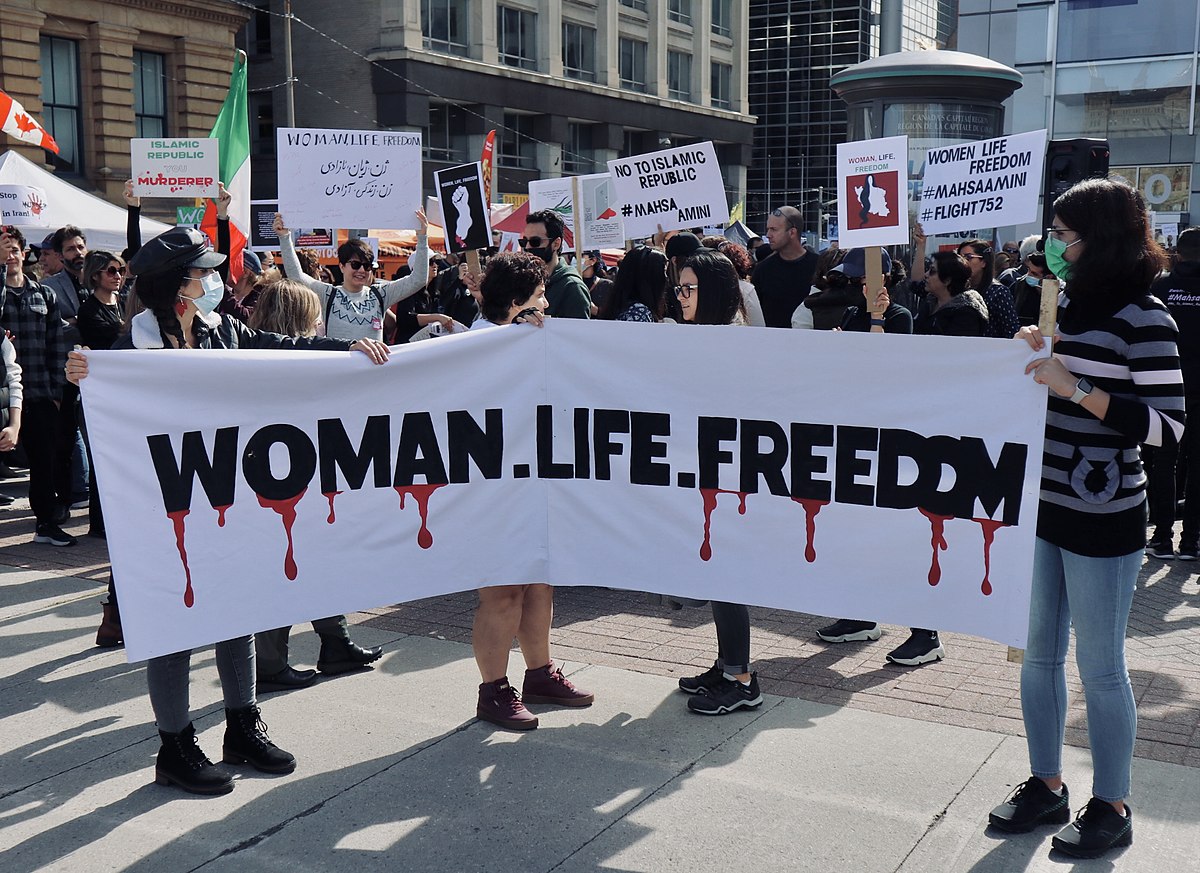The latest wave of protests in Iran that began in mid-September of this year are in response to corruption, police brutality and strict moral codes. After decades of failed economic policies, efforts to control the daily lives of Iranians and the immense repression of women, these public outcries seem different. Iranians appear to be reaching the tipping point.
According to Drake professor Dr. Kieran Williams, who teaches a class on U.S.-Iran relations, the relationship between the United States and Iran has tended to fluctuate, a trend that has continued over the past decade. The bond between the two countries is strained at the moment, he said, making it difficult to reach an agreement that would have brought Iran out of isolation, if only slightly.
“From a distance it is hard to tell whether this movement has the potential to hit the tipping point,” Williams said, but historically, events like these result in moderate reform.
The rift between the United States and Iran is apparent in the news, causing assumptions to be made about the ideals of Iranian citizens based on the choices of the Iranian government. These assumptions have resulted in little financial, political or moral support given to Iran. This disconnect can cause the situation in Iran to appear insignificant to U.S. citizens.
Jim Bunton, a teacher in Des Moines, joined the language learning platform iTalki to teach English and met multiple people who live in Iran. He grew up during the 1979 revolution in Iran and was therefore expecting a “flag burning, aggressive, America hating” Iran, so he was pleasantly surprised when he met wonderful people who were simply living under the control of a corrupt government.
“Something different I’m seeing in this revolution is that there is more anger, but also more trauma,” Bunton said.
He explained how the Iranian women he knows feel guilty for not participating directly in protests, but they are afraid of what could happen to them if they publicly protest. Many women are going into town without a hijab or other covering though, as a form of quiet, peaceful protest.
Although the Iranians protesting may want a more modern and “Westernized Iran,” as explained by the American Iranian Council, it is important to understand that they have plenty of reasons to distrust Western countries and their Arab neighbors.
Western companies had near-control over Iran’s oil policies, the country’s main form of income, from 1954 to 1973. Many Arab states such as Saudi Arabia and Kuwait gave support to Iraq during the Iran-Iraq war, causing polarization between Iranians and most of their Arab neighbors.
Because of technology like social media, Iranians now have the opportunity to post and inform others about their situation, though the Iranian government has made it difficult for citizens to have access to the internet and the outside world. Citizens of Iran have used VPNs to maneuver around this obstacle, but censorship and social media algorithms continue to filter out those posts and videos.
Many Western societies tend to assume that all Iranian women want freedom and equality so they don’t have to wear head coverings. The Stanford News says “their epic battle for equality” is a fight about autonomy – they are fighting for the right to choose. People can aid the women in Iran by listening generously and by standing with them in solidarity, since making assumptions can make things even more difficult for the Iranian people.
The Drake Middle East Peace and Prosperity Alliance has been a campus group for over 10 years but has had a decline in members over the past few years due to the lower number of students from the Middle East at Drake. Difficulty with visas and perceptions of the U.S.’ social and political climate are the most cited reasons for this decline, according to a report by the Institute of National Education. Though the group is not exclusively for students from Middle Eastern countries – they welcome anyone who is passionate about cultures and issues around the world. Contact Deena Alsabbah at deena.alsabbah@drake.edu or meppa@drake.edu for more information.
MEPPA put together a teach-in event on campus in mid-November to teach Drake students and the Des Moines community about the global issue of women’s rights and how it applies to the events happening in Iran. They invited Dr. Debra DeLaet, a professor at Drake University who specializes in human rights law and global gender issues, and Dr. Shirin Saeidi, the Director of Middle East Studies at the University of Arkansas, to speak at this event.
Dr. DeLaet and Dr. Saeidi said that it is incredibly important to pay attention to where information is coming from and who is speaking, as the United States doesn’t always report global news comparable to the women’s crisis in Iran accurately. Some resources they recommend for accurate information are the Project on Middle East Political Science at pomeps.org and the Middle East Research and Information Project at merip.org.
Women in Iran have been fighting for equal rights for decades and in the new age of social media and globalization, this wave of protests has reached a wide range of people around the world. According to the Council on Foreign Relations, dozens have already died. Listening to the stories of these women could aid the cause immensely and save lives.







